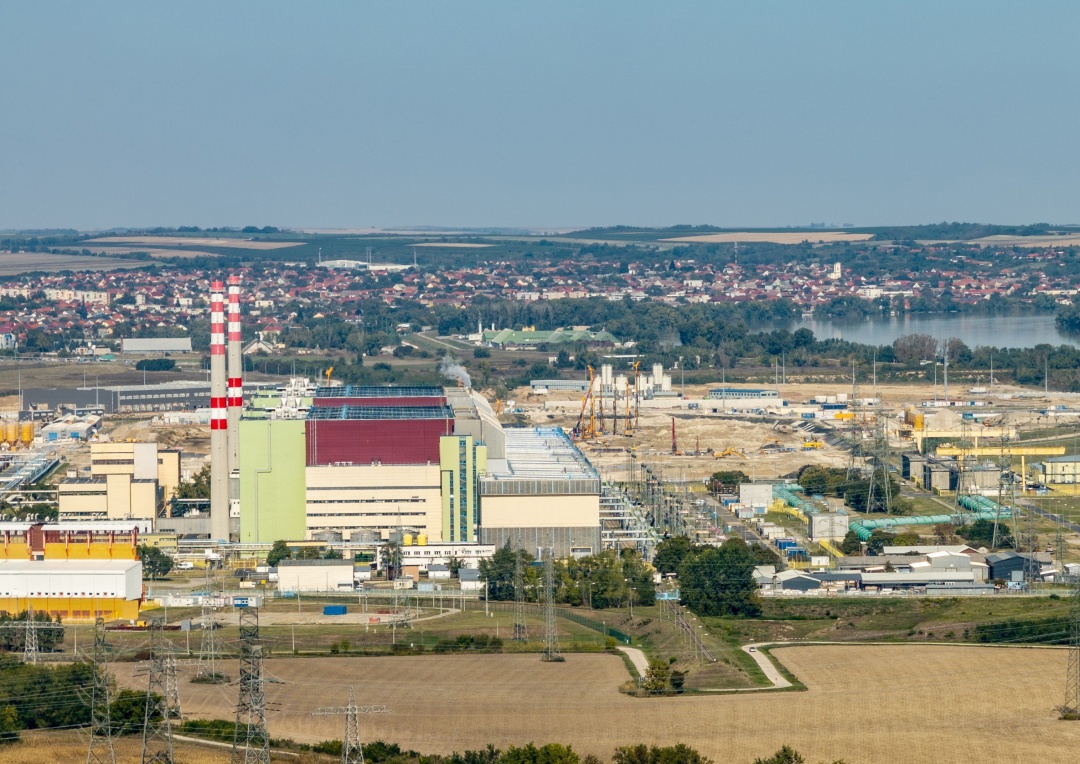
There will be seven hundred quality checks during the reactor vessel's production period.Continue reading

We are facing a potential golden age in U.S.-Hungarian relations, based on the close relationship between the leaders of the two countries, Robert Palladino, interim Chargé d’Affaires of the U.S. Embassy in Hungary, said in a conversation with Gladden Pappin, President of the Hungarian Institute of International Affairs, on Tuesday.
Mr. Palladino highlighted that Donald Trump has always prided himself on keeping his promises, but he is also quick to act, things happen at lightning speed, so it is going to be an exciting time. In terms of U.S.-Hungarian diplomacy and foreign relations, this means a return to traditional diplomacy, to the basics, where common sense will lead the way at Trump’s request, he added.
On the changes in the new U.S. administration, he said: Donald Trump has brought many great patriots into his administration to implement his policy plans. He called the fundamental approach a return to putting American interests first. “We are better off looking our allies in the eye and seeing if we have a common position.
Fortunately, the Hungarian government is thinking like us, so we speak a common language. Both sides are looking for mutual cooperation with each other to expand common interests,”
he stated, adding that he believes this is the most important factor in a cooperative relationship.

L-R: Gladden Pappin and Robert Palladino. Photo: MTI/Máthé Zoltán
Mr. Palladino recalled that Secretary of State Marco Rubio requested politicians to ask themselves three questions before any decision is made: will this make the United States safer, stronger, and more successful? He added that the United States has a public debt of 36,000 billion dollars, so they cannot continue “permanent expansion” in the future. Instead, they must focus on a perspective that he said the Hungarian government knows very well.
On tariffs, he explained that Donald Trump wants the United States to be treated in the same way as they treat other countries.
He called the U.S. economy one of the most open economies in the world, but added “overseas” they face closed economies, tariffs, and other economic barriers. President Trump wants this to be replaced by “reciprocity and fairness” and fair trade, he pointed out. In this context, he agreed with Hungarian Foreign Minister Péter Szijjártó’s statement that Brussels should take an active role in negotiations to strengthen trade relations between the U.S. and the EU.
On the war in Ukraine, he emphasized that the Trump administration is clearly prioritizing the end of the war, is currently leading the peace talks between Moscow and Kyiv, and its position is supported by the Hungarian government. He said that the first goal for ending the war was to bring the parties to the negotiating table and the second was to increase Europe’s responsibility for its own security. The United States expects a very different attitude from European countries in terms of contributions to military and defense budgets, so the US administration is grateful for the help it has received from the Hungarians,” he pointed out.
Robert Palladino stressed that he sees great potential for close cooperation between the two countries in the defense field, and that the closeness between the leaders of the two countries creates space for cooperation at the level of governments, companies, and ordinary people.
He said we are living in a potential golden age of U.S.-Hungarian relations, which will require hard work, but he is optimistic about the results.
Honored to host Chargé d’Affaires Robert J. Palladino (@USAmbHungary) for a fireside chat in Budapest, where he discussed the promising golden age ahead for Hungarian-American relations.
Palladino highlighted that Hungary has long advocated for peace, in concert with @POTUS.… pic.twitter.com/D3WMOiL3R0
— Gladden Pappin (@gjpappin) April 8, 2025
The diplomat called the news of a “divorce” between the United States and Europe “exaggerated,” adding that the content of these reports simply does not correspond to reality. He reflected that Europe and the United States share a common past, history, values, and destiny, and that their common ancestors built the foundations of Western civilization. They want to see a stronger Europe, which would also be a better ally for the United States. He called for an increase in defense industrial bases and production in Europe, and on democratic values, said that leaders should listen to their own citizens instead of censoring minority opinion.
On his predecessor David Pressman’s “relationship” with the Hungarian government, he said it was no secret that there was plenty of tension between him and the Hungarian government, which at times led to sensitive situations, but with Trump’s return, the opportunity to restart bilateral relations has come.
Mr. Palladino underlined that
the high level of political reconnection between the U.S. and Hungary is already visible: the U.S. President and the Prime Minister of Hungary are close, they have many opportunities to talk, Foreign Minister Szijjártó has visited Secretary of State Marco Rubio, and delegations from the two countries visit each other regularly.
That is why he said it is important to turn the relationship between the leaders into real results and to return to traditional diplomacy − without activism.
He stressed that the U.S. administration will focus first on energy, defense, trade, and people-to-people relations between Hungary and the United States. Referring to his visit to the Paks nuclear power plant, he stressed the importance of nuclear fuel, underlining that “energy security is also national security.” He added that U.S. companies are ready to deliver. Another area for future cooperation is small modular reactors, and he recalled that the U.S. has the best technology in this field. “Hungary is our ally. We will always ensure that your allies are not at the mercy of any energy source,” he stressed.
Via MTI, Featured photo via MTI/Máthé Zoltán